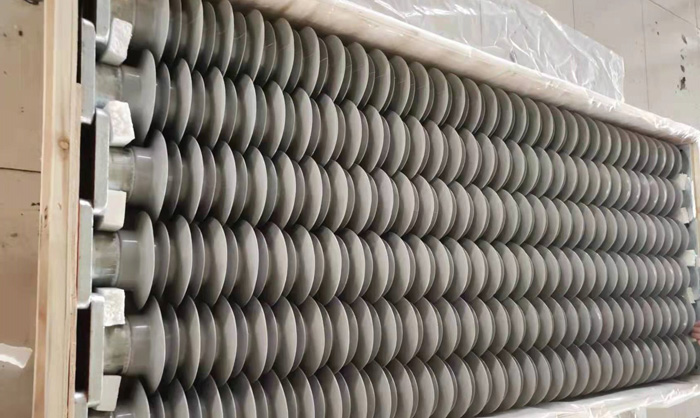Polymer post insulators are a type of electrical
insulator used to support high-voltage transmission lines. They are made from a polymer material, which is a synthetic or semi-synthetic organic compound that has the ability to withstand high temperatures and harsh environmental conditions.
The main function of a polymer post insulator is to provide a safe and reliable means of supporting power lines while preventing electrical leakage between the line and the supporting structure. This is achieved by creating an air gap between the line and the insulator, which acts as a barrier to the flow of electricity.
Polymer post insulators have several advantages over traditional glass or
ceramic insulators. They are lighter in weight, which makes them easier to install and reduces the risk of damage during transportation or installation. They are also more flexible, which allows them to better withstand wind and ice loads without breaking.
Another advantage of polymer post insulators is their resistance to UV radiation and chemicals. This makes them ideal for use in areas with harsh weather conditions or where they may be exposed to chemicals such as pollutants or deicing agents.
In addition, polymer post insulators have a longer lifespan than traditional insulators. They can last up to 20 years or more, which reduces the need for frequent maintenance and replacement. This not only saves time and money but also reduces the risk of accidents caused by damaged or worn insulators.
Despite these advantages, polymer post insulators do have some limitations. They are not suitable for use in extremely cold climates, as the low temperature can cause the material to become brittle and break. They are also more expensive than traditional insulators, which can make them less attractive to some users.
In conclusion, polymer post insulators are a valuable addition to the world of electrical engineering. Their unique properties make them well-suited for use in a wide range of applications, from power transmission lines to communication towers. While they may not be suitable for all environments, their many advantages make them a popular choice for those who require reliable and durable insulation solutions.
